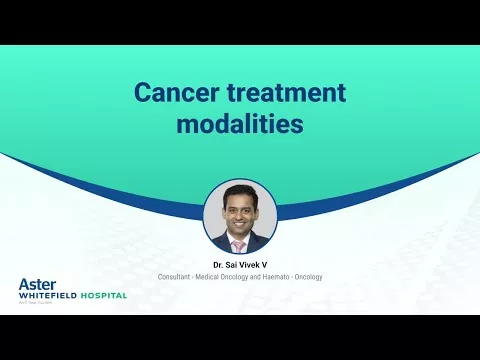Everyone of us has the capacity to control our own food intake from birth. Infants are able to recognise when they are hungry and when they are satisfied. Our innate intrinsic system of self-regulation is overridden through conditioning, such as sayings like "Eat one more bite" or "Clear your plate," and is replaced by an extrinsic one.
One can re-learn how to self-regulate their food intake through intuitive eating. Intuitive eating is the process of listening to your body's cues about when to eat and when to stop, as well as about what it may or may not need.
Cancer may cause changes in your appetite or self-perception, which can make it challenging to eat and acquire the nutrition you require. Find out more about intuitive eating and how it can benefit cancer patients and survivors here.
What benefits might intuitive eating provide for cancer patients and survivors?
Individuals often have complicated relationships with their bodies, and getting a cancer diagnosis can make those interactions much more confusing. After receiving their diagnosis, people with cancer may find it particularly challenging to trust their body. As a result, individuals might try to adhere to rigid nutritional guidelines in order to feel in control and stable. They might discover that taking certain cancer medications causes them to eat more or less, forcing them to rely on outside cues to control their food consumption.
For cancer patients and survivors who may be having issues with their eating habits or their self-image, intuitive eating can be a beneficial practice. People with cancer can benefit greatly from intuitive eating, including:
- Increasing body positivity and acceptance
- Building self-confidence
- Developing self-awareness to recognise self-cues to determine which foods make your body feel its best
- Putting more emphasis on what to do than on what to avoid
Intuitive eating avoids labeling foods as "good" or "bad" and removes the emphasis from weight. A stronger relationship with your body and reduced stress are two other benefits of intuitive eating, which may be freeing both during and after cancer.
How to make intuitive eating work?
Before making dietary adjustments, you should always consult your medical staff. The actions listed below can assist you in beginning your intuitive eating practice if it is advised for you.
1- Ignore the diet mentality.
Recognize that the majority of restricted diets fail. A diet that has not been scientifically established to be effective should not be followed, just as you would not take a drug with a very high failure rate. Most of the time, restricting your diet and depriving yourself will not be effective.
2 – Respect your hunger.
Feeding your body consistently with all 3 macronutrients—proteins, fats, and carbohydrates—can aid in lowering the natural urge to overeat if you battle with overeating.
3 - Create harmony with food.
Recognize that anything goes in your diet! All foods ultimately decompose into the same biochemicals in our bodies, which provide us with energy. While it is true that some foods may provide more nutrients than others, this does not imply that any particular food or dietary type is unhealthy. Giving yourself permission to eat anything and refraining from categorizing things as "good" or "bad" will help lessen feelings of guilt associated with eating and the urge to overeat these foods when they are available.
4- Challenge the "food police" step by step.
Keep in mind that your diet does not define you as a good or bad person. Never let yourself, a family member, or a friend tell you what you should or shouldn't be doing with your food. To find out what works for you, pay attention to your body's cues. When someone tries to put detrimental eating restrictions on you, you should challenge them.
5- Feel yourself to be full.
Learn to read your body's signals of hunger and fullness to determine when to start and stop eating. Pause while you're eating to pay attention to this scale so you can fully appreciate the meal you're consuming.
6- Find out what contributes to satisfaction.
Make sure there aren't any other distractions in the dining area. While you eat, relax and take it all in. Try experiencing food with all of your senses: view the food, consider where it came from, smell it, taste it, and relish every flavor of each bite.
7: Manage your emotions without eating.
Our lives are entangled with food in numerous ways. It serves as our primary source of energy throughout the day, but it is also something we share with our loved ones and friends. Food provides comfort for many of us. Also, while using food as consolation is acceptable, you shouldn't rely solely on it to help you deal with tough feelings. Talk with your health care team about exploring different ways of coping with feelings beyond food.
Speak to your medical provider about finding alternative coping mechanisms for emotions besides eating.
8 – Honor your body.
Everybody is different in terms of size, form, and body composition. Focus on what your body accomplishes for you every single day if you are having self-image issues, and recognise that some days may be more difficult than others.
9 - Work out and notice the difference.
Exercise should be a celebration of all that your body is capable of, not a punishment for what you consumed on a given day. Choose an activity you like to perform for fitness, such as dancing, walking, or even hula hooping. If it is something you enjoy doing, you are more likely to undertake it and remain with it. Furthermore, studies show that any movement is preferable to none.
The foundation of intuitive eating is self-compassion. Try engaging in a self-compassion practice if you're having trouble controlling your intuitive eating. Consider this: Would you discuss your body, food, or eating habits the same way you would with a friend?











